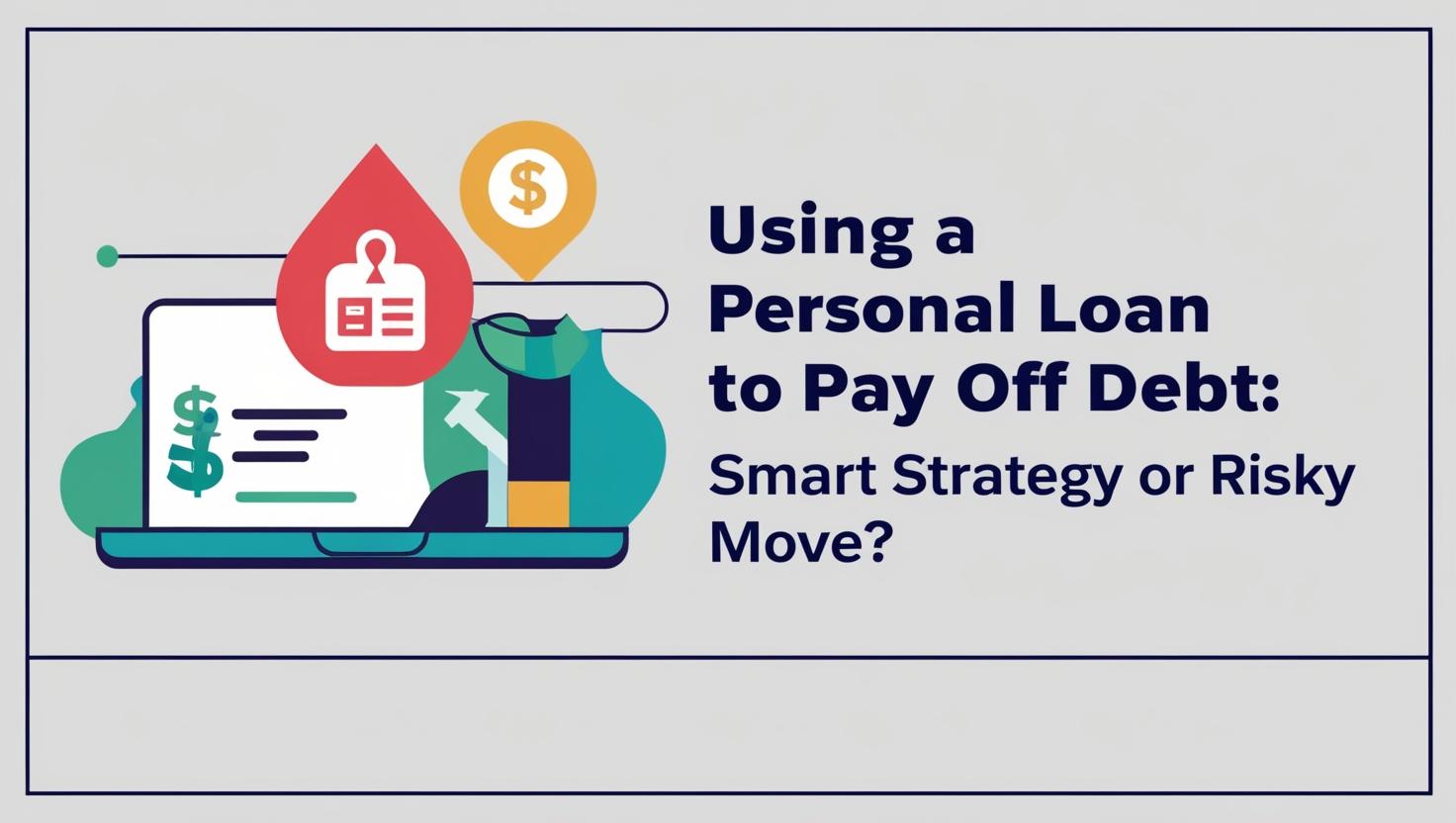Managing your money in can feel overwhelming. Yet, it’s key to achieving financial freedom and security. This guide will share vital personal finance tips. They will help you control your money and set the stage for a successful future.
Learning about financial literacy, money management, and wealth-building is crucial. You’ll get the knowledge and confidence to handle personal finance. This article is for anyone starting their financial journey or looking to improve their plan. It offers insights and tools to reach your financial goals.
Key Takeaways
- Develop a deep understanding of financial literacy and key personal finance concepts.
- Establish strong money management habits to achieve greater control over your finances.
- Explore strategies for building long-term wealth and financial security.
- Implement smart spending and saving techniques to maximize your financial resources.
- Effectively manage debt and optimize your credit for a healthier financial future.
Understanding Financial Literacy Fundamentals
Learning about personal finance is key. This section covers important terms, money habits, and wealth psychology. Knowing these basics helps you make smart money choices and control your financial future.
Key Financial Terms You Need to Know
Start with basic financial terms. Key words include budgeting, saving, investing, credit, debt, and compound interest. Understanding these concepts is crucial for good financial planning.
Building Strong Money Management Habits
- Make a budget to track your money.
- Save a part of your income, no matter how small.
- Control your spending to avoid overspending.
- Check and update your financial goals often.
The Psychology of Wealth Building
Wealth isn’t just about numbers; it’s also about mindset. Understanding delayed gratification, self-discipline, and risk tolerance is vital. A positive mindset helps you overcome spending challenges and stay focused on financial freedom.
“The key to wealth is the mindset, not the money.” – T. Harv Eker

| Financial Literacy Key Elements | Description |
|---|---|
| Budgeting Basics | Developing a system to track income, expenses, and savings to achieve financial goals. |
| Money Management Habits | Cultivating disciplined spending, saving, and goal-setting behaviors. |
| Wealth Building Psychology | Understanding the mindset and emotional factors that influence financial success. |
Creating a Solid Budget Strategy
Making a detailed budget is key to managing your money well. It helps you control your spending and reach your financial goals. Here, we’ll look at the main parts of a good budget plan.
Budgeting Techniques for Success
Understanding your spending habits is the first step. Start by tracking your expenses and sorting them into needs and wants. This helps you see where you can save money. Use budget apps or spreadsheets to make tracking easier and get a clear view of your finances.
Optimizing Income Allocation
After knowing your expenses, it’s time to plan how to use your income. Save some for your goals, like building an emergency fund or paying off debt. Make sure your essential costs are covered, then use the rest for your long-term plans.
Adjusting Your Budget for Financial Goals
Your budget should change as your financial needs and goals do. Update it often to reflect new expenses, income changes, or shifting priorities. A flexible budget helps you handle financial ups and downs and stay focused on your goals.
“A budget is telling your money where to go instead of wondering where it went.”
Having a solid budget plan is a big step towards financial freedom. By using budgeting techniques, tracking expenses, and smart income allocation, you can make a plan that supports your goals. This empowers you to make smart choices about your money.
Essential Personal Finance Tips for Success
Getting to financial freedom needs a few steps. We’ll look at key personal finance tips to help you on your journey. These include smart spending, saving, managing debt, and making more money. These tips will help you control your financial future.
Smart Spending and Saving Techniques
Living frugally is crucial for financial health. First, find ways to spend less on things you don’t need. Cut down on impulse buys and focus on what’s important. Also, save a part of your income regularly to build a strong financial base.
Debt Management Strategies
Debt can block your path to financial freedom. Start by paying off debts with high interest rates first. Look into debt consolidation and talk to creditors. Make a plan to pay off your debts, so you can reach your financial goals.
Income Optimization Methods
Having different income sources can help a lot. Look for side jobs or freelance work that fits your skills and interests. This way, you can pay off debt faster and save more money.
| Technique | Description | Potential Impact |
|---|---|---|
| Frugal Living | Identifying and reducing unnecessary expenses | Increased savings and reduced debt |
| Debt Consolidation | Combining multiple debts into a single, lower-interest loan | Simplified repayment and potential interest savings |
| Side Hustles | Engaging in additional income-generating activities | Supplementary income for debt reduction and savings |
Using these personal finance tips can lead to big steps towards financial freedom. The most important thing is to keep using these strategies with financial discipline.
Building and Managing Emergency Funds
Creating a strong financial safety net is key to long-term financial security. An emergency fund protects you from sudden expenses. It helps you stay financially stable through life’s ups and downs.
To build an emergency fund, focus on liquid savings. These are funds you can quickly use when needed. Experts say to save three to six months’ worth of living costs. But, the right amount depends on your personal situation.
- First, figure out your monthly must-haves like rent, utilities, and food. This helps you know how much to save.
- Make saving automatic by moving money from your checking to a savings account regularly.
- Look into high-yield savings or money market funds. They help your savings grow while keeping it easy to access.
Managing your emergency fund means more than just saving. It’s also about using the money wisely. When unexpected expenses come up, don’t use your savings for things you don’t need. Focus on the urgent financial issue first. Then, fill up your savings again as soon as you can.
| Benefit | Description |
|---|---|
| Peace of Mind | A good emergency fund gives you peace of mind and less stress when money troubles arise. |
| Avoidance of Debt | Using your savings for unexpected costs helps you avoid high-interest debt. |
| Financial Stability | A solid emergency fund keeps your finances stable. It helps you reach your long-term goals. |
Building and managing an emergency fund is a smart way to achieve financial freedom. It prepares you for financial storms. By focusing on this part of your finance plan, you create a financial safety net. This gives you the strength and peace of mind to succeed in any financial situation.
Investment Strategies for Long-term Wealth
Building a strong investment portfolio is crucial for long-term financial success. Whether you’re new or experienced, knowing the basics of investment strategies is key. It helps you make smart choices and grow your wealth.
Stock Market Basics for Beginners
The stock market is a powerful tool for managing your portfolio. For beginners, understanding stock trading basics is essential. This includes knowing common investment vehicles, analyzing market trends, and grasping compound interest. With a solid start, you can confidently navigate the stock market and aim for long-term gains.
Diversification Techniques
- Diversify your portfolio: Spread your investments across different asset classes like stocks, bonds, and real estate. This helps reduce risk and adds stability to your portfolio management.
- Invest in various industries: Don’t put all your eggs in one basket. Avoid focusing on a single sector or industry to protect your portfolio from market ups and downs.
- Consider international exposure: Adding international investments can open you up to different economic and market conditions. This can boost your asset allocation and long-term growth.
Understanding Risk Tolerance
Your risk tolerance is key to choosing the right investment strategies. Think about how you feel about market changes, your time frame, and your financial situation. This helps you create an investment plan that fits your risk profile. Knowing your risk tolerance lets you make better choices and build a portfolio management strategy for your long-term goals.
“Successful investing is about managing risk, not avoiding it.” – Benjamin Graham

Mastering Debt Reduction and Credit Management
Starting your journey to financial freedom means taking control of your debt and managing your credit well. We’ll explore ways to debt consolidation, credit score improvement, and responsible borrowing habits. These steps are key to living a debt-free lifestyle.
Debt consolidation can make paying back easier and might lower your interest rates. By merging several loans or credit card balances into one, you can manage your finances better. Look into balance transfer cards or personal loans to consolidate your debt and take back control.
A good credit score opens doors to better loans and lower interest rates. To improve your score, pay on time, use less of your credit, and check your credit report often. Showing you can borrow wisely leads to financial stability.
- Consolidate debts to simplify repayment and potentially lower interest rates
- Improve your credit score by making timely payments and reducing credit utilization
- Practice responsible borrowing habits to achieve a debt-free lifestyle
Mastering debt reduction and credit management is a big step towards financial freedom. Adopt these strategies and see your financial health improve.
Planning for Retirement and Future Security
Planning for a comfortable retirement and financial freedom is key for many. We’ll look at important strategies and resources to help you plan for a prosperous future.
Retirement Account Options
Retirement accounts like 401(k) plans and IRAs are great for saving. They offer tax benefits and a variety of investment choices. Knowing the details of each account can help you save more for retirement.
Social Security Planning
Social Security is a big part of retirement income. It’s important to understand how it works and how to get the most from it. Online calculators can give you insights into your Social Security benefits and how they fit into your financial plan.
Creating Passive Income Streams
- Investing in assets like rental properties or stocks can create passive income.
- Side hustles or freelance work can also add to your income.
- Starting passive income streams early can help you achieve financial freedom sooner.
| Retirement Account | Key Features | Contribution Limits (2023) |
|---|---|---|
| 401(k) Plan | Employer-sponsored, tax-deferred growth | $22,500 (plus $7,500 for those 50 and above) |
| Traditional IRA | Tax-deductible contributions, tax-deferred growth | $6,500 (plus $1,000 for those 50 and above) |
| Roth IRA | Tax-free growth and withdrawals in retirement | $6,500 (plus $1,000 for those 50 and above) |
By using retirement accounts, Social Security planning, and passive income, you can secure a financially independent retirement. Get advice from financial experts to create a plan that fits your goals and risk level.

Smart Tax Planning and Management
Taxes can seem overwhelming, but smart planning can help. You can reduce your taxes and improve your finances. We’ll look at ways to maximize your deductions, invest wisely, and use tax-advantaged accounts.
Unlocking Tax Deductions
Knowing your tax deductions is key. You can lower your taxes with mortgage interest, charitable gifts, and business expenses. Keep track of your eligible costs and stay informed on tax laws to claim all you can.
Tax-Efficient Investing Strategies
Building wealth means smart investing. Use tax-advantaged accounts like 401(k)s and IRAs. They help your savings grow while reducing taxes. Choose investments wisely to boost your returns and cut taxes.
Leveraging Tax-Advantaged Accounts
Accounts like 401(k)s, IRAs, and HSAs offer big tax benefits. Contributions might be tax-deductible, and earnings grow tax-free. Explore these options to enhance your financial strategy.
| Tax Deduction | Tax-Efficient Investment | Tax-Advantaged Account |
|---|---|---|
| Mortgage Interest | 401(k) | Roth IRA |
| Charitable Contributions | Municipal Bonds | HSA |
| Business Expenses | Tax-Managed Mutual Funds | 529 College Savings Plan |
Smart tax planning can improve your financial future. It leads to more tax deductions, tax-efficient investing, and tax-advantaged accounts. Good tax preparation is vital for your financial health.
Conclusion
As we wrap up this guide on personal finance, it’s clear that success comes from ongoing effort. It needs knowledge, smart money handling, and a strong goal commitment. We’ve covered key topics like financial literacy, budgeting, debt management, saving, and investing.
The journey to financial freedom faces obstacles, but with the right strategies, you can overcome them. Your path to financial empowerment is unique. Success depends on your eagerness to learn, adapt, and take action to manage your finances well.
Use what you’ve learned to start your journey towards financial empowerment. With the right mindset and goal commitment, you can tackle personal finance challenges. Begin this journey with confidence, and let your financial empowerment guide you to a better future.
FAQ
What are the key financial terms I need to know?
You should know about budgeting, savings, and investments. Also, credit, debt, and compound interest are important. These basics help build a solid financial foundation.
How can I develop effective money management habits?
Start by tracking your expenses and setting financial goals. Automating savings is also helpful. A positive money mindset is key to managing your finances well.
What are some strategies for building long-term wealth?
To build wealth, diversify your investments and use compound interest. Look into passive income too. Financial discipline and patience are crucial for long-term success.
How can I create a personalized budget that works for me?
Make a budget that fits your financial situation and goals. Try different budgeting methods and track your spending. Allocate your income wisely.
What are some smart spending and saving techniques I can implement?
Spend wisely by prioritizing needs over wants. Automate your savings and use discounts. Find ways to save without lowering your quality of life.
How can I manage my debt effectively?
Manage debt by consolidating high-interest loans and negotiating with creditors. Create a plan to pay off balances. Avoid new debt and borrow responsibly.
What are the key elements of a strong emergency fund?
Aim for 3-6 months’ living expenses in your emergency fund. This liquid savings is crucial for unexpected costs. It helps avoid high-interest debt.
How can I get started with investing for long-term wealth?
Start with basic investments like index funds for diversification and growth. Know your risk tolerance and diversify your portfolio. These steps are key for beginners.
What are some effective strategies for improving my credit score?
Improve your credit score by paying bills on time and keeping credit card balances low. Regularly check your credit report for errors. Responsible credit use is essential.
How can I prepare for a comfortable retirement?
Prepare for retirement by contributing to employer plans like 401(k)s. Also, explore IRAs. Diversify your savings, understand Social Security, and consider passive income for a secure retirement.







16 responses to “Mastering Your Money: Essential Personal Finance Tips for Financial Freedom”
This is a fantastic guide! I especially appreciate the emphasis on starting with small, manageable steps to build financial discipline. The budgeting tips are so practical and easy to implement!
Thank you so much, Joshua! I’m thrilled you found the guide helpful. Starting small really is the key to building strong financial habits. I’m glad the budgeting tips resonated with you!
Great article! The section on creating an emergency fund really resonated with me. It’s a crucial step that many overlook when planning their finances.
Thanks for your kind words, Joshua! I completely agree—an emergency fund is often underestimated but so essential. I’m happy that section spoke to you!
This is Timely. The FAQs really helped my curiosity as well as giving clarity to key issues. Thank you for sharing
Thank you, Proof! I’m so glad the FAQs addressed your questions and provided clarity. Your feedback means a lot!
I love how you broke down complex financial concepts into simple, actionable advice. The tips on automating savings are a game-changer for me!
Thank you, Kennedy! Simplifying financial concepts is always my goal, so I’m glad it helped. Automating savings truly is a powerful tool—happy to hear it’s a game-changer for you!
This is such an empowering read! Financial freedom feels achievable with the way you’ve structured these tips. Thanks for sharing your expertise.
Thank you, Kennedy! I’m so glad you found the tips empowering. Financial freedom is absolutely achievable, and I’m excited to know the article gave you that perspective!
Your advice on understanding needs versus wants was a real eye-opener. It’s something I struggle with, and your examples make it so much clearer.
Thank you, Solivian! I’m delighted that the advice resonated with you. Understanding needs versus wants can be tricky, but with practice, it gets much easier. I’m glad the examples helped!
What a comprehensive post! I found the section on debt management particularly helpful. It’s encouraging to see realistic strategies for paying off debt.
Thank you, Leslie! I’m so glad you found the post comprehensive and the debt management strategies helpful. Paying off debt can be challenging, but realistic steps make it much more manageable. Wishing you success on your financial journey!
Excellent comprehensive guide! I love how you’ve broken down complex financial concepts into actionable tips and strategies. The emphasis on creating an emergency fund, managing debt, and investing for long-term wealth is particularly valuable. Thanks for sharing your expertise and helping readers achieve financial freedom!
Empowering advice! This comprehensive guide provides essential personal finance tips for achieving financial freedom and security. From financial literacy to wealth-building strategies, it’s a valuable resource for anyone looking to take control of their finances and secure a successful future. Thanks for sharing actionable insights and tools to help readers reach their financial goals!